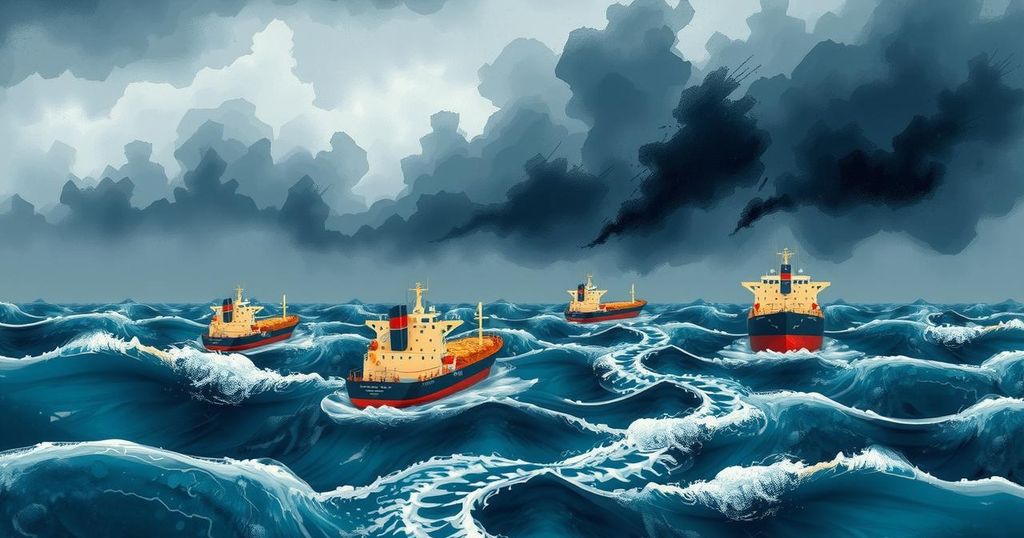Controversy Arises as Lithuania Donates Confiscated Fire Engines to Ukraine
Lithuania has come under fire for donating 17 fire engines to Ukraine, originally acquired by Zimbabwe. Political analysts have condemned this move, labeling it unlawful and discriminatory, as the engines were confiscated while in transit to Zimbabwe. The situation underscores the impact of Western sanctions and raises serious questions about sovereign rights and international law.
Lithuania recently made headlines with its controversial decision to donate 17 fire engines, originally purchased by Zimbabwe, to Ukraine. This action has provoked significant backlash, particularly from political analysts who characterize it as unlawful and discriminatory. The fire engines, which were procured from Belarus by Zimbabwe, were seized by Lithuanian authorities while en route to Harare, prompting outrage within the Zimbabwean government, which has demanded their return. Advocate Obert Gutu, a prominent political figure, condemned the move as “shameful, scandalous, and unlawful,” emphasizing that the fire engines are the rightful property of Zimbabwe, a sovereign state. Gutu further stated, “Lithuania has no legal right, under both public and private international law, to confiscate and donate the fire engines to Ukraine or any other country without Zimbabwe’s consent.” He argued that Zimbabwe is being unfairly entangled in geopolitical disputes between Lithuania and Belarus, suggesting that racism might contribute to Lithuania’s decision, remarking, “If Zimbabwe were a European country, I doubt such a decision would have been made.” Furthermore, analyst Mr. Tongai Dana supported these sentiments, criticizing the repercussions of Western sanctions, which led to the engine confiscation. He pointed out the critical nature of fire engines for emergency services in Zimbabwe and argued that their absence compromises the nation’s ability to manage disasters effectively. Dana described the confiscation as an example of how sanctions adversely affect ordinary citizens. “The confiscation of these fire engines is a stark example of how Western sanctions negatively impact ordinary people,” he expressed, underscoring the moral dilemmas posed by sanctions that obstruct essential services. He called for the cessation of sanctions against Zimbabwe, advocating for the release of the fire engines. Mr. Shadreck Mashayamombe added his voice to the criticism, labeling Lithuania’s actions as “callous” and asserting that fire engines serve a crucial role in providing life-saving services. He insisted that the matter should be resolved diplomatically instead of reallocating Zimbabwe’s assets to another nation, stating, “Our rights are being violated.” The Zimbabwean government continues to press Lithuania for the return of the fire engines, as diplomatic negotiations surrounding this contentious issue escalate.
The controversy stemmed from Lithuania’s seizure of fire engines purchased by Zimbabwe from Belarus. These vehicles were meant to bolster emergency response capabilities in Zimbabwe but were detained by Lithuania during transit. This incident has highlighted tensions surrounding international sanctions and the legal and ethical implications of such actions, particularly when they affect essential services in developing nations. Observers note the complex interplay between international relations, race, and the interests of sovereign states during geopolitical conflicts.
The donation of fire engines by Lithuania to Ukraine, originally intended for Zimbabwe, has raised significant legal and ethical concerns. Analysts have condemned this action as unlawful, arguing that it undermines Zimbabwe’s rights as a sovereign state and highlights the adverse impacts of Western sanctions. Calls for diplomatic resolution and the return of the fire engines have intensified as Zimbabwean officials demand accountability from Lithuania.
Original Source: bulawayo24.com




Post Comment